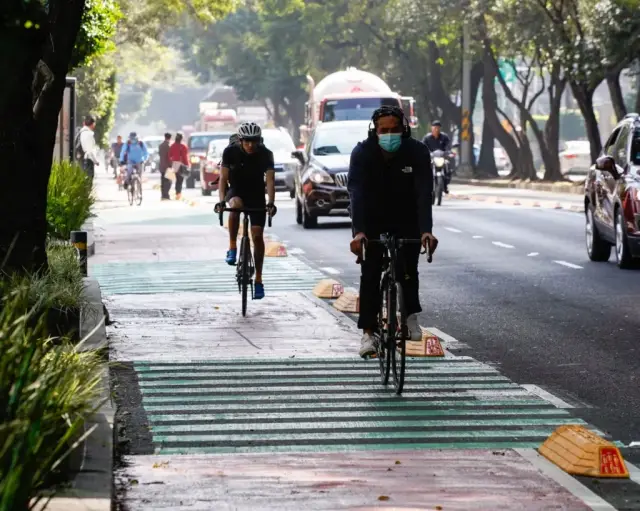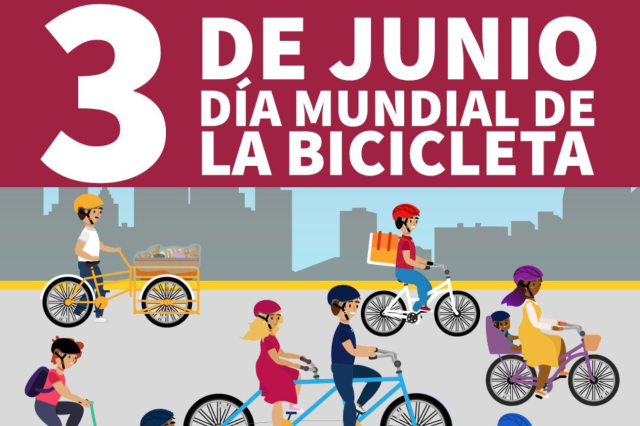World Bicycle Day , celebrated every June 3rd, is a date proclaimed by the United Nations General Assembly in 2018 to highlight the benefits of this efficient and sustainable means of transportation. In Mexico, the bicycle has gained prominence as a solution to the challenges of climate change, urban congestion, and the promotion of healthy habits. This article explores how Mexico has adopted the bicycle as a means of transportation, the progress made, and the challenges it still faces.
The bicycle in Mexico: from recreation to urban transport
First steps towards a cycling culture
In Mexico, the bicycle began to gain popularity in the late 19th century, initially as a means of recreation for the upper classes. Over time, its use spread to different sectors of society, becoming an accessible and affordable means of transportation.
Pioneering programs: Ecobici and MiBici
Two of the most prominent programs promoting bicycle use in Mexico are Ecobici in Mexico City and MiBici in Guadalajara.
Ecobici : Launched in 2010, this bike-sharing system allows registered users to pick up a bike from any bike station and return it to the nearest one to their destination for unlimited 45-minute rides.
MiBici : Launched in 2014, this service operates in Guadalajara, Zapopan, and Tlaquepaque, offering a network of shared bicycles with strategically located stations to facilitate urban mobility.
Infrastructure and public policies in favor of cycling
Expansion of bike paths
Mexico has made progress in building cycling infrastructure. Currently, the country has more than 2,700 kilometers of bike paths, distributed across various cities, seeking to promote bicycle use as a safe and efficient means of transportation.
Government strategies
The Mexican government has implemented various strategies to promote bicycle mobility, including:
Bicycle Mobility Strategy : A document that describes concrete actions supported by scientific information on current bicycle mobility patterns.
Bicycle promotion programs : Initiatives such as the “Biciruta” in Oaxaca seek to provide the population with infrastructure to get around by bicycle, promoting sustainable mobility.
Benefits of using a bicycle
Adopting the bicycle as a means of transport offers multiple benefits:
Physical and mental health : Regular cycling helps prevent cardiovascular disease, improves physical fitness, and reduces stress.
Pollution reduction : By not emitting polluting gases, cycling helps reduce the carbon footprint and improve air quality in cities.
Economic efficiency : The bicycle is an economical alternative to the high cost of maintaining a car, allowing savings on fuel and maintenance.

Challenges and future perspectives
Road safety
One of the main challenges for cyclists in Mexico is road safety. Lack of respect from some drivers and insufficient infrastructure in certain areas pose risks to those who choose to use bicycles as a means of transportation.
Citizen awareness
Promoting a culture of respect and coexistence among cyclists, pedestrians, and motorists is essential for the development of sustainable urban mobility. Educational campaigns and awareness programs are key tools for achieving this goal.
Citizen initiatives and events
In addition to government actions, various organizations and collectives have promoted bicycle use in Mexico. Events such as the "Muévete en Bici" Sunday Ride in Mexico City allow thousands of people to enjoy the streets on bicycles, fostering a cycling culture and the use of this mode of transportation.
Frequently Asked Questions (FAQ)
When is World Bicycle Day celebrated?
June 3 of each year, as established by the United Nations General Assembly in 2018.
What is Ecobici?
It's a bike-sharing system in Mexico City that allows registered users to pick up and return bikes at different bike stations for trips of up to 45 minutes.
What benefits does cycling offer?
It improves physical and mental health, reduces environmental pollution, is economical, and contributes to more efficient urban mobility.
What challenges do cyclists face in Mexico?
Mainly road safety and the need for better infrastructure and a culture of respect for cyclists.
What initiatives exist to promote bicycle use?
In addition to government programs like Ecobici and MiBici, there are events like the “Muévete en Bici” Sunday Ride and educational campaigns to promote a cycling culture.
Towards a more sustainable future
The adoption of bicycles as a means of transportation in Mexico represents a significant step toward more sustainable, healthy, and efficient cities. While significant progress has been made in infrastructure and public policies, challenges remain that require the collaboration of governments, organizations, and citizens. Fostering a culture of respect and promoting bicycle use are key actions to transform our cities and improve the quality of life of their inhabitants.
